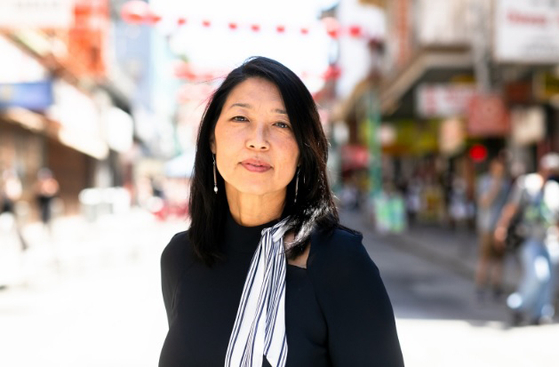
That’s according to a recent report, Two Years and Thousands of Voices, by Stop AAPI Hate, a San Francisco-based organization that tracks Asian hate incidents.
“The history of Asian discrimination and stereotyping is not new, but the pandemic has added fuel to the fire,” said Cynthia Choi, a second-generation Korean American.
“As early as the 1800s, Asians were viewed as ‘dirty’ and ‘disease-carrying’ in a predominantly white society. “It is shocking that Chinese and Korean people have been the primary victims of hate incidents during the pandemic, but it also shows that the pain of Asian immigration history has not changed.”
The report is based on a total of 11,467 hate incidents and crimes reported by the organization over a two-year period from March 19, 2020 to March 31, 2022. The organization said that in the first week of the survey, there were 600 cases of Asian hate across the country and more than 1,500 in a month.
Hate incidents were mainly name-calling, slurs, and threats directed at Asians, while hate crimes were physical assaults.
In particular, one in two Asians said they felt unsafe when out and about due to the anti-Asian sentiment, and two in three said they were worried about the safety of their family members and elders as a result of hate incidents and crimes. One in three Asian parents were worried about their child becoming a victim of discrimination or hate in public or on the way to or from school.
During the pandemic, Asian discrimination and hate have become epidemic, with more than 95% of Asian seniors aged 60 and older who has experienced racism, as well as the general victim population reporting that “the U.S. has become a dangerous place with an increased likelihood of physical harm.”
Choi credits politicians’ “anti-Asian rhetoric” for the spike in Asian hate incidents. “During the pandemic, the president used racist language. Chinese and other Asians were blamed. As a result, Asians, including me, had to feel afraid for our lives,” she said, criticizing the anti-social behavior and the inaction of politicians.
“Elected officials shouldn’t be creating fear with anti-Chinese, anti-Asian, racist or sexist remarks. They should be prioritizing the community, including enacting legislation that protects everyone’s lives and safety,” she added.
Harassment, including hate speech, mocking gestures, and written expressions, was the most common form of hate victimization (67%), according to the report. Criminal physical assaults accounted for 17%. Other forms of harassment included 16% shunning based on race, 9% online hate on social media, 6% discrimination in the workplace, 4% vandalism or robbery, and 4% denial of service.
Incidents occurred most often in public places, such as streets, parks, and public transportation facilities, at 40%. This was followed by 27% in business establishments such as markets, 10% in residences such as houses, and 9% in educational facilities such as schools.
“Mandatory immigration history education in public schools, active reporting by victims, and systematic responses by Asian communities, including the Korean American community, can help address anti-Asian sentiment and hate incidents,” said Choi.
“It is important to learn and understand the pain of our nation’s founding,” she said. “Whether it is the pain of black slavery, the genocide of indigenous peoples, the ostracization of Asians, or the harms of white supremacy, the perception that one race is superior to another, or that one individual is better than another, has fueled discrimination and hate. Through education and reflection, we need to move away from the perception that others are better than us.”
BY HYUNGJAE KIM [kim.ian@koreadaily.com]




![California Electricity Costs to Rise $320 Under Trump Energy Bill, Analysis Finds U.S. President Donald Trump in the Oval Office at the White House in Washington, D.C., U.S., March 12, 2025. [REUTERS]](https://www.koreadailyus.com/wp-content/uploads/2025/05/0313-Trump-100x70.jpg)